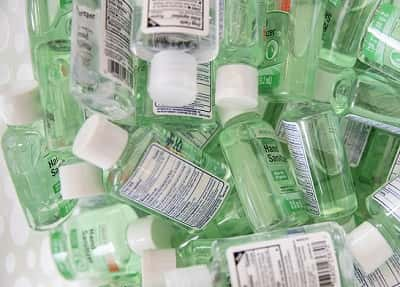
The Federal Drug Administration (FDA) is warning consumers not to use nine types of hand sanitizer made by the same manufacturer.
The FDA advises consumers not to use hand sanitizer manufactured by Eskbiochem SA de CV in Mexico, due to the potential presence of methanol (wood alcohol), a substance that can be toxic when absorbed through the skin or ingested.
The FDA has identified the following products manufactured by Eskbiochem:
- All-Clean Hand Sanitizer (NDC: 74589-002-01)
- Esk Biochem Hand Sanitizer (NDC: 74589-007-01)
- CleanCare NoGerm Advanced Hand Sanitizer 75% Alcohol (NDC: 74589-008-04)
- Lavar 70 Gel Hand Sanitizer (NDC: 74589-006-01)
- The Good Gel Antibacterial Gel Hand Sanitizer (NDC: 74589-010-10)
- CleanCare NoGerm Advanced Hand Sanitizer 80% Alcohol (NDC: 74589-005-03)
- CleanCare NoGerm Advanced Hand Sanitizer 75% Alcohol (NDC: 74589-009-01)
- CleanCare NoGerm Advanced Hand Sanitizer 80% Alcohol (NDC: 74589-003-01)
- Saniderm Advanced Hand Sanitizer (NDC: 74589-001-01)
The FDA tested samples of Lavar Gel and CleanCare No Germ, which showed Lavar Gel contains 81 percent methanol and no ethyl alcohol, and CleanCare No Germ contains 28 percent methanol.
Methanol is not an acceptable ingredient for hand sanitizers and should not be used due to its toxic effects.
Consumers who have been exposed to hand sanitizer containing methanol should seek immediate treatment, according to the FDC, which is critical for potential reversal of toxic effects of methanol poisoning.
Health officials said substantial methanol exposure can result in nausea, vomiting, headache, blurred vision, permanent blindness, seizures, coma, permanent damage to the nervous system or death. Although all persons using these products on their hands are at risk, young children who accidently ingest these products and adolescents and adults who drink these products as an alcohol (ethanol) substitute, are most at risk for methanol poisoning.
By Ken Howlett, News Director
Contact Ken at ken@k105.com







